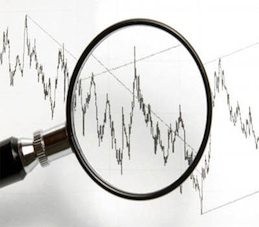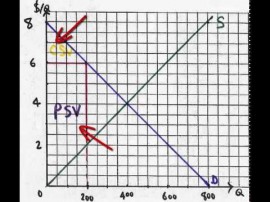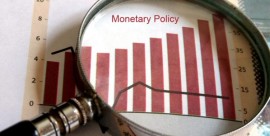- Fecha(s): 22/06/2018
- Lugar: Seminario de Fundamentos del Análisis Económico, B2/02
- Ponente: Iñaki Permanyer

Abstract: When measuring multidimensional poverty it is reasonable to expect that the trade-offs between variable pairs can differ depending on whether the concerned pairs are complements or substitutes. Yet, currently existing approaches based on deprivation count distributions unrealistically assume that all pairs of variables are related in the same way, an unfortunate circumstance that undermines…
- Fecha(s): 27/04/2018
- Lugar: Seminario del Departamento de Métodos Cuantitativos para la Economía y Empresa, UMU. Retransmisión en directo y grabación.
- Ponente: Jesús Vázquez. Universidad del País Vasco

ABSTRACT: Adaptive learning (AL) takes over other features needed to generate a sizable term premium under rational expectations. Indeed, a time-varying term premium emerges in a first-order approximation of a DSGE model under AL. We estimate a real-time AL model that builds on Slobodyan and Wouters (2012a). Our extension disentangles the expectations hypothesis of the term structure (EH)…
- Fecha(s): 13/04/2018
- Lugar: Seminario del Departamento de Métodos Cuantitativos para la Economía y Empresa, UMU. Retransmisión en directo.
- Ponente: Emilio Cerdá Tena. Universidad Complutense Madrid

This paper addresses the long-term impacts of climate change on wind speed and, therefore, on wind energy generation. A projection of wind speed was carried out for four selected wind farms in Spain, using an ensemble of three climate models, two scenarios (RCP 4.5 and 8.5) and two time periods (2018-2041 and 2042-2065) per plant….
- Fecha(s): 16/03/2018
- Lugar: Seminario de Fundamentos del Análisis Económico (aula amarilla, B2/02)
- Ponente: Manuela Magalhäes

Abstract: This paper adds the standard input–output linkages into a multi-sector endogenous growth model to study the interaction effects between linkages and technology adoption for aggregate productivity and for income per capita. We show that the greater the intensity with which a good is used as input by other sectors, the smaller are the technology…
- Fecha(s): 09/02/2018
- Lugar: Seminario de Fundamentos del Análisis Económico, B2/02
- Ponente: Francisco Alcalá Agulló

Abstract Which are the factors affecting the long run sustainability of GDP growth? This paper discusses a potentially important one that has been disregarded so far: the shift in advanced economies from quantity to quality growth. First, the paper lays down a simple model introducing the quality dimension of consumption into the IPAT analytical framework….
- Fecha(s): 12/01/2018
- Lugar: Seminario del Departamento de Métodos Cuantitativos para la Economía y Empresa, UMU. Retransmisión en directo.
- Ponente: Mª Pilar Martínez García. Universidad de Murcia

Abstract In this paper a dynamic model of economic growth, tourism and environment is studied. The model considers tourists in the economy as optimizing agents, interacting with domestic consumers. The number of tourists arriving in the country follows the Tourism Are Life-cycle model with a tourism carrying capacity dependent on environmental quality. Tourism hurts environment and abatement activities have…
- Fecha(s): 15/12/2017
- Lugar: Seminario B2/02, Fundamentos del Análisis Económico, Facultad de Economía y Empresa, U. Murcia
- Ponente: José Rueda Llano. Friedrich-Schiller University.

Abstract The appeal of the concept of perfectly competitive equilibrium (PCE), to describe the outcome of trade in competitive markets, relies on three assumptions: 1) in the absence of frictions, PCE is the result of the centralized or decentralized interaction of rational agents, 2) whenever the market is out of equilibrium, an adjustment process would…
- Fecha(s): 27/10/2016
- Lugar: Seminario del Departamento de Métodos Cuantitativos para la Economía y Empresa, UMU. Retransmisión en directo.
- Ponente: Mª Pilar Martínez García. Universidad de Murcia

Abstract: We analyze the effect of non-constant discounting on the sustainability of economic growth in a model with pollution and abatement. A balanced path equilibrium with decreasing pollution exists under plausible assumptions considering time-consistent agents. Compared to exponential discounting, the social optimum when consumers discount a non-constant rate shows greater abatement and consumption expenditure shares…
- Fecha(s): 12/02/2016
- Lugar: Aula Seminario Tino Martínez Gallur (Fundamentos del Análisis Económico) B2/02 (retransmisión en directo prevista)
- Ponente: Manuel García-Santana (Universidad Pompeu Fabra)

Abstract Spanish GDP grew at an average rate of 3.5% per year during the expansion of 1995- 2007, above the EU average of 2.2%. However, this growth was based on factor accumulation rather than productivity gains. In particular, TFP fell at an annual rate of 0.7%, while it increased at 0.4% in the EU and…
- Fecha(s): 11/02/2016
- Lugar: Seminario del Departamento de Métodos Cuantitativos para la Economía y Empresa, UMU. Retransmisión en directo pendiente de confirmación.
- Ponente: Matteo Ciccarelli, Banco Central Europeo Frankfurt

Abstract: This paper analyses the transmission of monetary policy to bank lending conditions during the period of financial and sovereign debt crisis in the euro area. A unique bank-level dataset is used to capture the main channels through which standard and non-standard monetary policy measures propagates to the lending behaviour of individual banks. The results…











